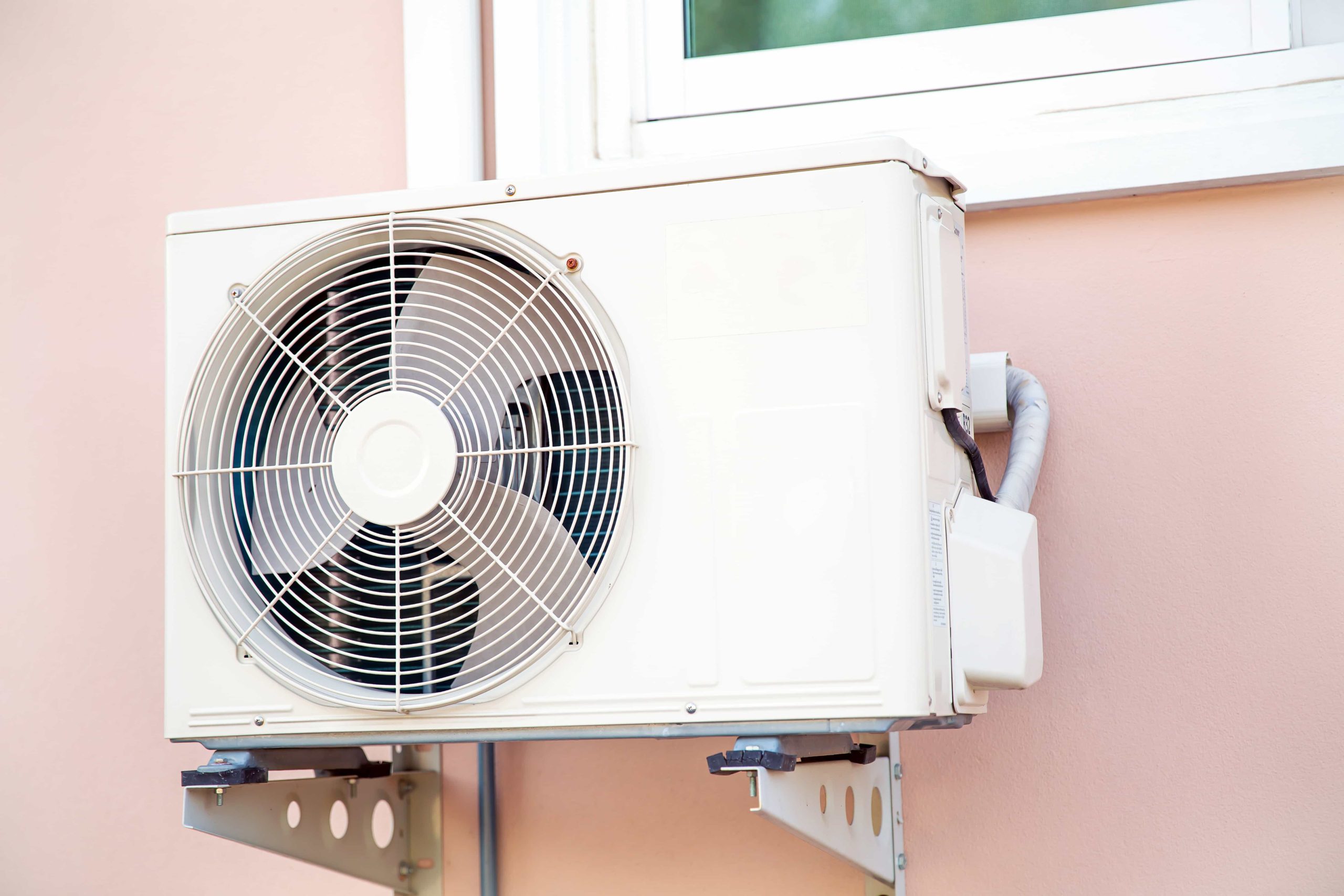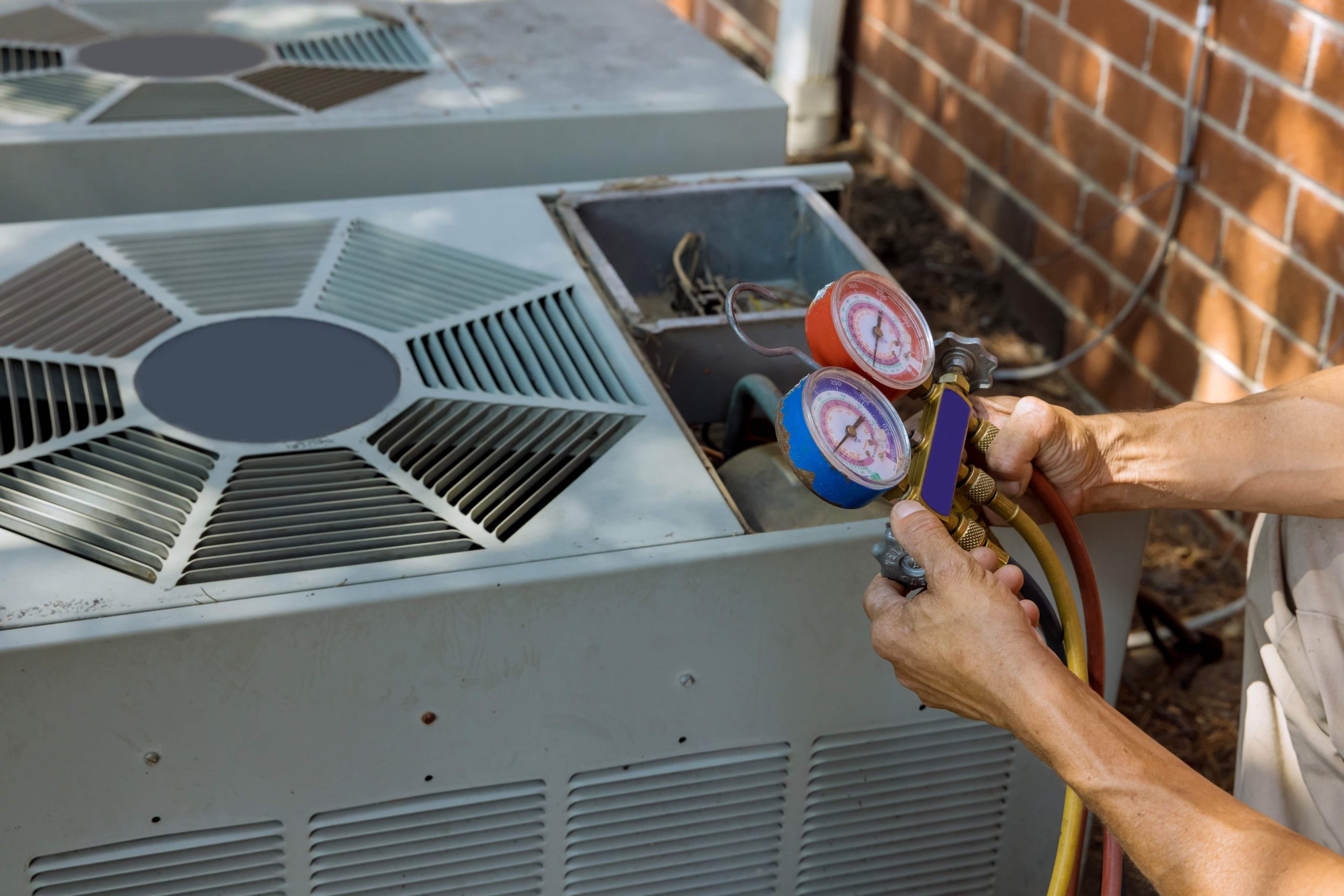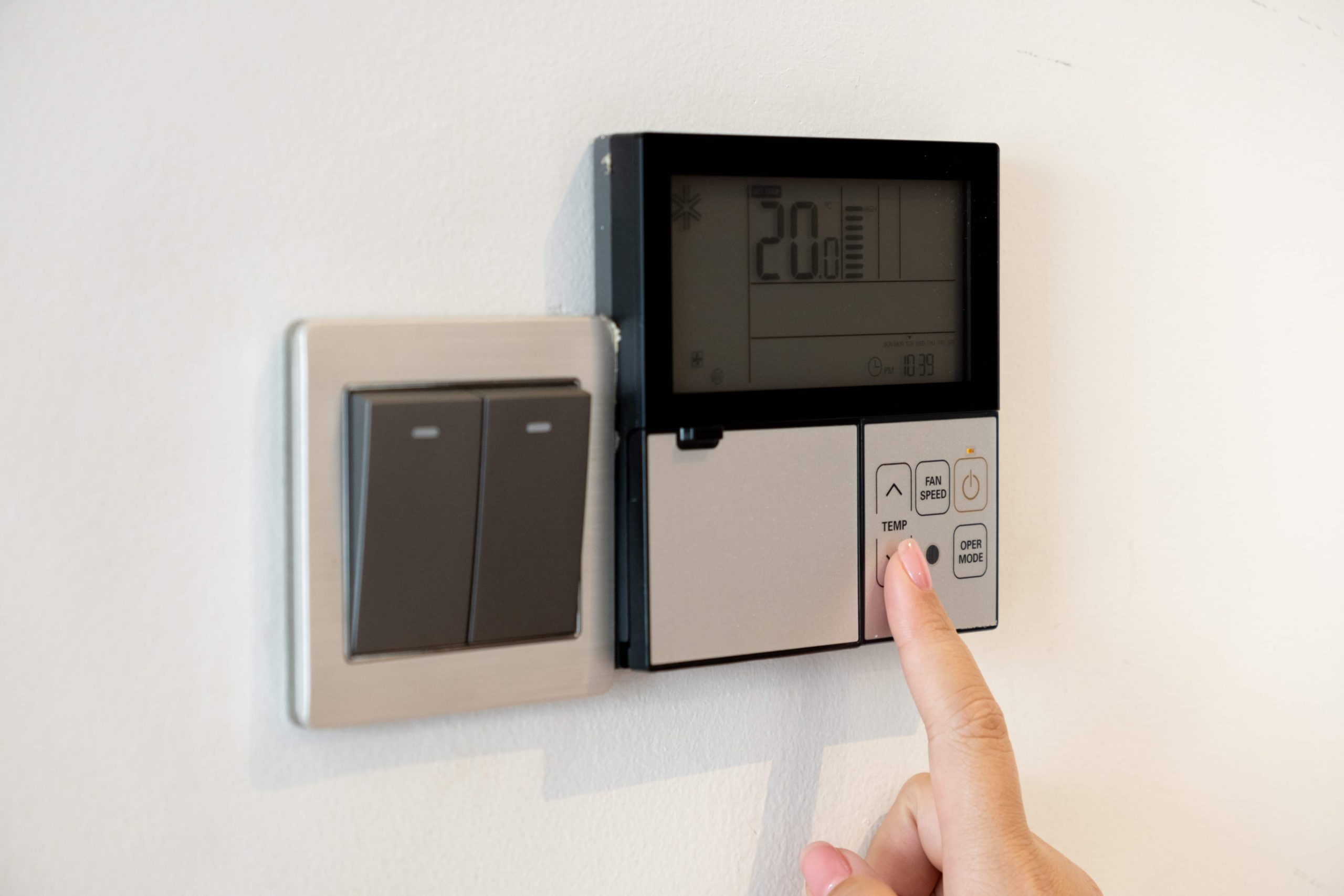According to the Energy Information Association, 87 percent of residences in the US have air conditioning. However, many of those homes have the wrong AC unit for their needs! When it comes time to install or replace your home's air conditioning system, you have a lot of choices to make. How big should your system be? What type of air conditioner should it use? Should you go for Mini Split AC vs Central Air?
It can be tough to decide which type of air conditioning system is right for your home. Central air is a popular choice, but mini split AC systems are growing in popularity. So, which one should you choose?
There is no one-size-fits-all answer to this question, as the best air conditioning system for your home will depend on a number of factors. However, we can help you evaluate the pros and cons of mini-split ACs and central air systems so that you can make an informed decision about which option is best for your needs.
What Is A Mini-Split AC Unit
A mini-split AC unit is an air conditioner that doesn't require a centralized duct system. Mini-split ACs have two main parts: an outdoor compressor/condenser and an indoor air handler.
A connecting refrigerant line runs between the two units. Most mini-splits have one or two indoor air handlers, but some systems have as many as eight air handlers connected to one outdoor unit.
Mini-split ACs are a popular choice for homes and businesses because they are energy efficient and can be installed in various locations. They are also relatively quiet and don't require extensive ductwork, saving you money on installation costs.
If you're considering installing a mini-split AC in your home or business, it's important to hire a qualified contractor to do the job. Installation is typically not a do-it-yourself project because it requires specialized equipment and knowledge.

What Is a Central Air Conditioner
A central air conditioner is a system that helps to cool your home by using a single unit to remove heat from the indoor air and circulate it back outside. They use ductwork to provide cool air throughout your home or business in every room.
This type of AC unit is typically more expensive to install than other types, but it can be more energy-efficient and provide better cooling power than window units or portable air conditioners. Central air conditioners also help to improve indoor air quality by filtering out dust, pollen, and other airborne particles.
If you are considering installing a central air conditioner in your home, there are a few things to keep in mind. First, you will need to have a Professional HVAC Contractor come to your home to assess the size and layout of your house.
They will need to determine the best location for the outdoor unit and make sure that there is enough space for the indoor unit as well. They will also need to set up the ductwork throughout your home. Once the central air conditioner is installed, you will need to have it regularly maintained by a professional in order to keep it running efficiently.
How Do Mini Split AC Units Operate
Mini-split AC systems are very popular in Europe and Asia and are becoming increasingly popular in North America as well. They are a great option for those who want the benefits of central air conditioning without the need for ductwork.
As we've already mentioned, a mini-split AC system consists of two main parts: an outdoor unit that contains the compressor, condenser, and expansion valve, and an indoor unit that contains the evaporator coil. The two units are connected by refrigerant lines.
The outdoor compressor compresses refrigerant, which is then pumped to the indoor unit. The evaporator coil is where this refrigerant goes next. This process removes heat from the air inside your home, cooling it down. The cooled air is then circulated back into your living space by the indoor unit’s fan.

The refrigerant that is used in mini split AC systems does not deplete the ozone layer, making them a more environmentally-friendly option than older AC units that used Freon. Mini-split AC units are also very energy efficient since they use less overall energy to run, depending on your temperature settings, and usually have an eco-friendly mode.
If you are considering installing a Mini Split versus Central Air AC system in your home, contact a Local HVAC Contractor to discuss your options. They will be able to help you determine the size and type of unit that best suits your needs.
How Do Central Air AC Systems Operate
The compressor and fan are the two main components of a central air AC unit. The compressor circulates the refrigerant. The refrigerant is circulated through the evaporator coils, which are cooled by the fan. This causes the refrigerant to evaporate, which draws heat from the air. The cooled air is then circulated back into the home through ductwork.
A thermostat controls the operation of the unit. When the thermostat senses that the temperature in the home has risen above the setpoint, it will turn on the unit. The compressor will start and begin circulating refrigerant through the system.
The fan will also turn on, blowing air over the evaporator coils. This process will continue until the thermostat senses that the temperature has reached the setpoint, at which time it will turn the unit off.
Central air AC units are typically located outside the home, though some units may be located in an attic or basement. The location of the unit can impact its efficiency.
In order to maximize efficiency, central air AC units should be regularly maintained. This includes cleaning the coils and filters and making sure that all of the parts are in good working order. Regular maintenance can help to extend the life of the unit and keep it running efficiently.

Mini Split Air Conditioner vs Central Air Pros and Cons
Now that we have a better understanding of the two different types of units, let's talk about the pros and cons of each.
Pros of Mini Split AC
1. Easy to Install – Most mini-split ACs come with easy-to-follow instructions, making installation a breeze.
2. No Need for Ductwork – Since mini splits don't require any ductwork, they're a great option for homes that can't accommodate traditional ducted systems.
3. Highly Efficient – Mini split AC units are some of the most energy-efficient cooling systems on the market today. Many models boast SEER ratings of 20 or higher.
4. Zone Cooling – With a mini-split AC, you have the ability to cool specific areas or "zones" in your home, rather than cooling the entire space. This can help you save money on your power bills.
5. Quiet Operation – Mini split AC units tend to be very quiet, making them ideal for bedrooms and other areas in your home.
6. Long-Lasting – With proper maintenance, a mini-split AC can last up to 20 years or more.
Cons of Mini Split AC
1. Higher Initial Cost – While mini-split AC units have a higher upfront cost than a window or portable unit, they often make up for it in energy savings over time.
2. Can't Cool Large Spaces – Mini split AC units are best suited for smaller homes or individual rooms rather than larger spaces like open concept homes or homes with many rooms that you need to keep cool.
3. The Wrong Type of Unit for Your Needs – Having a unit that is too big or that is wrongly installed may result in short-cycling and energy waste, as well as being unable to properly regulate the temperature or humidity.
Pros of Central Air Conditioner
1. Can Cool Large Spaces – Central AC units are powerful enough to cool large spaces like open-concept homes and apartments.
2. The Cost Can Be Cheaper - The upfront cost of a central air conditioner is around 30% less than mini-split systems if you don't count the ductwork installation.
3. Easy to Repair – Central AC units are relatively simple systems, so they're usually easy and inexpensive to repair if something goes wrong.
4. Quiet Operation – Many newer central AC units operate at very low noise levels, making them nearly indistinguishable from mini-split AC units. Plus they are outside most of the time so you won't hear them at all unless you are next to them.
Cons of Central Air Conditioner
1. Requires Ductwork – Since central AC systems require ductwork, they're not a good option for homes that can't accommodate traditional ducted systems.
2. Less Energy-Efficient – Central AC systems are not as energy-efficient as mini-split AC units, so they may cost more to operate over time.
3. Not as Long-Lasting – With proper maintenance, a central AC can last up to 15 years or more. However, mini-split ACs tend to have a longer lifespan.

Mini-Split AC vs Central Air Conditioner: Which One Is Right for You
According to the HVAC market trends, split-type room air conditioners are by far the most popular device type, the worldwide demand for them was over 83.46 million units in 2018.
When it comes to cooling your home, you have two main options: a mini-split air conditioner or a central air conditioner. Both have their pros and cons, so it’s important to decide which one is best for you and your home. Here are some things to consider when making your decision:
1. How Big or Small Is Your House
Size also matters when you are deciding between a Mini Split AC vs Central Air Conditioner. If you have a small home, then a mini-split ac sizing is ideal for you because it is more energy-efficient and can cool or heat your home fast.
On the other hand, if you have a large home, then a central air conditioner is the better option because it can evenly cool or heat all the rooms in your house. Consider discussing the mini split ac size chart with Thomas Service Company to find out which one fits your needs.
You should also consider the BTUs you'll need, factor in the rooms, your typical temperature, and even your insulation. You can do that with our free BTU calculator!
2. Cost of Mini Split vs Central Air
The cost for Mini Split systems is usually more expensive than central air conditioners upfront. So, if you are on a tight budget, then a central AC is the better option for you. It could cost you 30% less.
3. What’s the Condition of Your House
If you have an older home and it doesn't already have ductwork installed, then it might not be a good option for a central AC unit. Mini-split systems don’t require ductwork, so they can be installed in any type of home.
4. How Much Maintenance Does Each System Need
Both mini-split and central air conditioners need to be regularly maintained to keep them running efficiently. But mini-split systems usually need less maintenance than central air conditioners because there are fewer parts and no ductwork.
However, no matter if you go with a mini split unit or central air, we recommend having regular monthly HVAC maintenance performed.
5. Which System Is More Energy-Efficient
Mini-split systems are more energy-efficient than central air conditioners because they don’t lose energy through ductwork. So, if you are looking for a more energy-efficient option, then a mini-split system is the way to go.
6. Which System Is More Environmentally Friendly
Mini-split systems are more environmentally friendly than central air conditioners because they don’t use as much energy. Mini-split refrigerant is 100 percent eco-friendly and is non-ozone-depleting. They also use less energy. So, if you are looking for a more eco-friendly option, then a mini-split system is the way to go.
So, these are some things to consider when deciding between a mini split air conditioner vs central air. Both have their pros and cons, so make sure to choose the one that is best for you and your home.
If you need any help choosing the right system for your home, contact us or your local HVAC professional. We will be able to assess your needs and recommend the best cooling and heating solution for your home.

Now It's Your Choice to Make
Central air systems are a good choice for homes that have existing ductwork, and for those who want the most efficient cooling system possible. They are also less expensive to install than mini-split AC units at first and can be used to cool multiple rooms at once.
However, central air systems can be less energy efficient than mini-split AC units. Mini split AC units are great for cooling smaller areas or specific rooms. They are also the most eco-friendly unit when it comes to HVAC.
So, which type of air conditioning system is right for you, Mini Split AC vs Central Air? The best way to answer this question is to consult with a Professional HVAC Contractor who can assess your specific needs and recommend the best option for your home.

